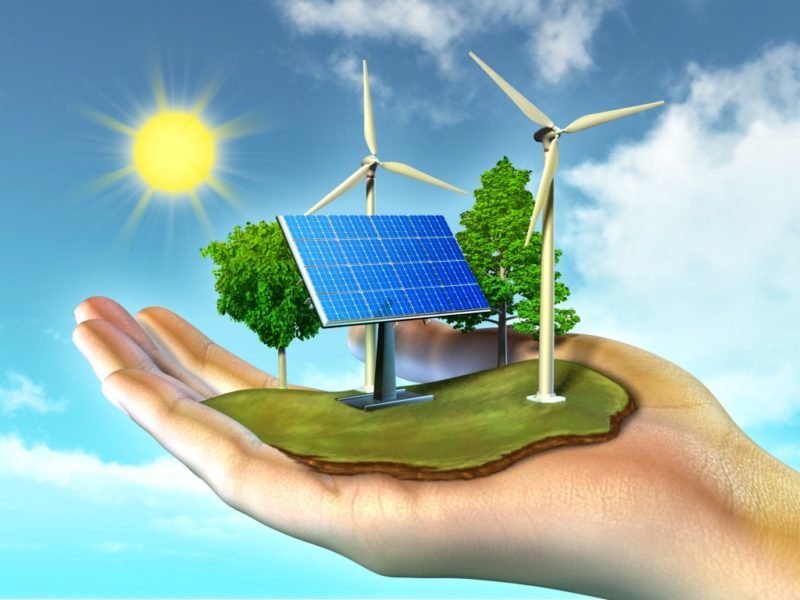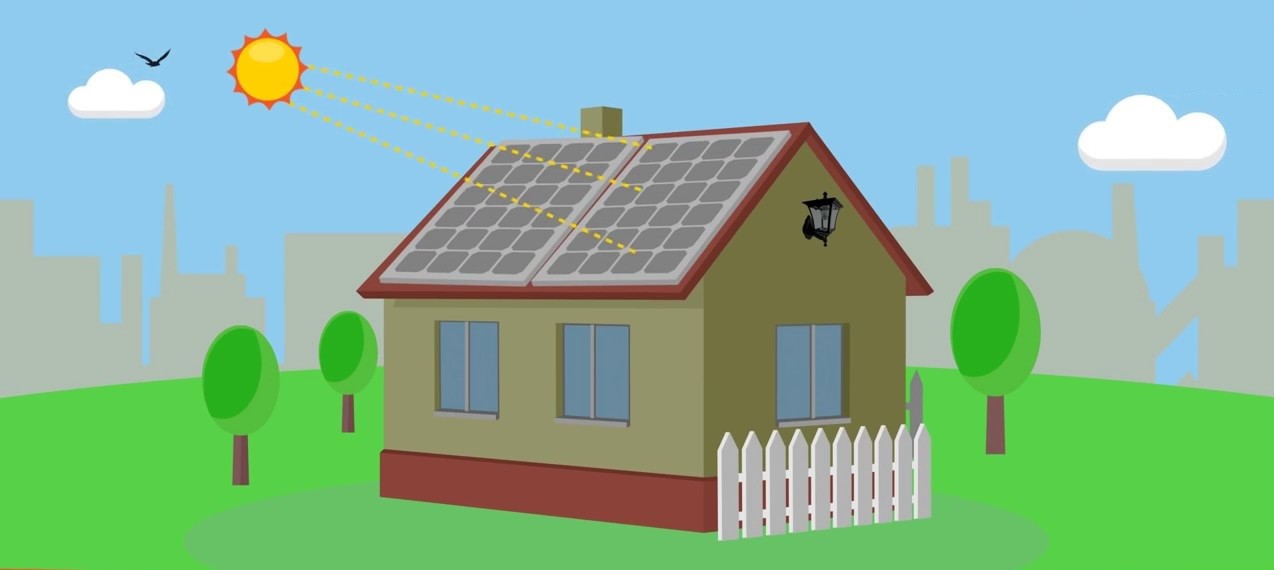Pure Power: Transforming to a Clean Energy Home
Pure Power: Transforming to a Clean Energy Home
Switching to clean energy at home is more than just a trend; it’s a sustainable lifestyle choice that brings a myriad of benefits. This article explores the journey toward a clean energy home, covering key aspects from renewable technologies to energy-efficient practices.
Embracing Renewable Technologies
The foundation of a clean energy home lies in embracing renewable technologies. Solar panels, wind turbines, and other renewable energy systems harness the power of nature to generate electricity. Installing these technologies allows homeowners to tap into clean, sustainable sources and reduce dependence on conventional power grids.
The Solar Advantage
Solar energy stands out as a primary player in the clean energy revolution. Solar panels convert sunlight into electricity, offering a reliable and eco-friendly power source. The reduced reliance on fossil fuels not only lowers carbon footprints but also leads to significant cost savings on electricity bills over the long term.
Wind Power for a Breezy Solution
Wind turbines are another pivotal element in the clean energy landscape. Harnessing the power of the wind, these turbines generate electricity without emitting harmful pollutants. Wind power complements solar energy, providing a reliable energy source even when sunlight is limited. Combined, they create a robust renewable energy system.
Energy Efficiency as a Cornerstone
Transforming to a clean energy home involves more than just installing renewable technologies; it requires a commitment to energy efficiency. Simple practices like using energy-efficient appliances, improving insulation, and adopting smart home technologies contribute to reducing overall energy consumption.
Smart Home Integration for Optimal Efficiency
Integrating smart home technologies enhances the efficiency of a clean energy home. Smart thermostats, lighting controls, and energy monitoring systems allow homeowners to optimize energy usage. These technologies not only contribute to sustainability but also provide greater control over energy consumption.
Economic Benefits and Cost Savings
Clean energy homes come with economic benefits. While the initial investment in renewable technologies may seem substantial, the long-term cost savings are significant. Lower energy bills, potential government incentives, and increased home value contribute to the overall economic advantages of embracing clean energy.
Reducing Carbon Footprints for Environmental Impact
One of the primary motivations for transitioning to a clean energy home is the desire to reduce carbon footprints. By relying on renewable sources, homeowners actively contribute to the reduction of greenhouse gas emissions. This environmental impact plays a crucial role in combating climate change and preserving the planet.
Government Incentives and Support
Governments worldwide recognize the importance of clean energy adoption and often provide incentives and support. These can include tax credits, rebates, and other financial perks to encourage homeowners to invest in renewable technologies. Researching and taking advantage of these incentives make the transition more accessible.
Community Impact and Advocacy
Embracing clean energy extends beyond individual homes; it contributes to a broader community impact. Homeowners who adopt clean energy technologies become advocates, inspiring neighbors and communities to follow suit. This collective effort creates a positive ripple effect, fostering a culture of sustainability.
Educational Resources for Clean Living
Educational resources play a vital role in empowering homeowners to make informed choices. Online guides, workshops, and community programs offer valuable insights into clean energy practices, energy-efficient living, and the ongoing advancements in renewable technologies.
Clean Energy Home: A Link to a Sustainable Future
Ready to embark on the journey toward a clean energy home? Explore the possibilities at Clean Energy Home. Discover how transitioning to clean energy not only benefits your household but also contributes to a sustainable future for generations to come.
In conclusion, transforming to a clean energy home is a holistic and rewarding endeavor. From embracing renewable technologies and enhancing energy efficiency to enjoying economic benefits and advocating for sustainability, the journey toward a clean energy home is a step toward a brighter, more sustainable future.
Renewable Harmony: Powering Your Home Sustainably

Renewable Harmony: Powering Your Home Sustainably
Renewable power for homes is not just a modern convenience; it’s a sustainable choice that aligns with environmental responsibility. This article explores the transformative impact of embracing renewable energy sources to power homes efficiently and responsibly.
The Essence of Renewable Power
At the core of renewable power is the utilization of energy sources that are naturally replenished. Solar, wind, hydro, and geothermal energy are prime examples. Unlike finite fossil fuels, renewable power harnesses the abundance of these resources, providing a sustainable and eco-friendly alternative for powering homes.
Solar Brilliance: Capturing Energy from the Sun
Solar power stands out as a frontrunner in the realm of renewable energy for homes. Photovoltaic (PV) panels, typically installed on rooftops, capture sunlight and convert it into electricity. This clean and inexhaustible source of energy not only reduces reliance on traditional grids but also contributes to lowering carbon footprints.
Wind Energy: Harvesting the Power of Breezes
Wind turbines, strategically positioned in areas with consistent wind patterns, harness the kinetic energy of the wind to generate electricity. Wind power is a versatile and scalable option for homes, with smaller wind turbines suitable for residential use. It’s a visually appealing and efficient way to contribute to renewable power.
Hydropower: Tapping into Water’s Energy
Hydropower utilizes the energy of flowing or falling water to generate electricity. While larger-scale hydropower plants are common, micro-hydropower systems can be implemented for homes with access to flowing water. This renewable source provides a reliable and continuous energy supply.
Geothermal Energy: Harnessing Earth’s Heat
Geothermal energy taps into the Earth’s internal heat to produce electricity. Geothermal heat pumps can also be used for heating and cooling homes. This energy source is reliable, constant, and environmentally friendly, making it a valuable addition to the renewable power portfolio for homes.
Advantages of Renewable Power for Homes
Embracing renewable power offers a multitude of advantages for homeowners. It significantly reduces reliance on non-renewable resources, lowers energy bills over time, and contributes to a cleaner environment. The installation of renewable energy systems may also make homeowners eligible for government incentives and tax credits.
Technological Advances in Home Renewable Energy Systems
Technological advancements in home renewable energy systems are making them more efficient and accessible. Improved storage solutions, smart grid integration, and user-friendly monitoring systems empower homeowners to harness renewable power with ease. These advances enhance the feasibility and effectiveness of renewable energy for homes.
Economic Incentives for Renewable Home Energy
Governments worldwide recognize the importance of transitioning to renewable energy. Incentive programs, subsidies, and tax credits encourage homeowners to invest in renewable power systems. These economic benefits make renewable home energy more financially viable and accelerate the shift toward a sustainable energy landscape.
Environmental Impact of Renewable Home Energy
The environmental impact of renewable home energy is a key consideration. By reducing dependence on fossil fuels, homeowners actively contribute to lowering greenhouse gas emissions and combating climate change. The cleaner production of energy aligns with global efforts to create a more sustainable and eco-friendly future.
Empowering Homes with Renewable Power: A Sustainable Future
Ready to embark on a journey toward a sustainable future? Visit Renewable Power Home to explore resources and insights into harnessing renewable power for homes. Discover how adopting clean energy sources transforms not only how homes are powered but also contributes to a healthier planet.
In conclusion, renewable power for homes represents a pivotal step towards a sustainable and eco-friendly future. From solar brilliance to wind energy and geothermal power, the options are diverse and increasingly accessible. Embracing renewable power isn’t just about powering homes; it’s a commitment to environmental stewardship and a harmonious coexistence with the Earth.

